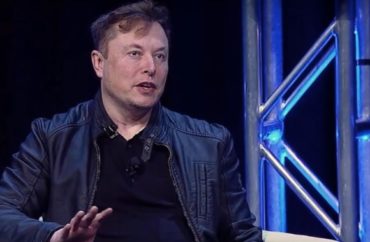
Elon Musk said he believes learning is largely absent from college campuses, and that he wants to remove all degree requirements from Tesla hiring.
“I think colleges are basically for fun and to prove you can do your chores, but they’re not for learning,” the billionaire CEO of Tesla and SpaceX said at last week’s Satellite 2020 conference in Washington, D.C.
The main value of college, Musk said, is seeing if students can work hard by completing “annoying homework assignments.”
Musk said he believes college is unnecessary because people “don’t need college to learn stuff,” as they can learn “anything they want for free.”
Musk said he hopes to remove all requirements for college degrees at his companies, as the main requirement of employment at Tesla and SpaceX is “exceptional ability,” and he does not consider going to college “evidence of exceptional ability.”
He called the requirement of a college degree “absurd.”
Asked to weigh in on the topic by The College Fix, Douglas Webber, professor of economics at Temple University who studies the economics of higher education, said that “people have been saying similar things for years.
“But the [return on investment] on a college degree has remained very high, though this of course depends on the major,” he said.
Webber’s research shows engineering, business, and nursing degrees have the highest return on investment, while degrees in theology, studio arts, liberal arts, and social sciences have lower returns. Students who majored in theology, for instance, earned on average less over their lifetime than students who attended some college, but did not graduate.
On average, college graduates earn $30,000 more per year than high school graduates, according to research from the Federal Reserve Bank of New York.
Musk may be right, however, in his assessment of an absence of learning at colleges.
A 2016 Heritage Foundation study found the average full-time college student spends 2.76 hours per day on all education-related activities, with 1.18 hours spent in class and 1.53 hours spent on research and homework. This adds up to 19.3 hours spent per week on education, which compares to high school students’ average of 30.3 hours per week spent on education.
College students spent an average of over 30 hours per week on leisure, the study found.
Despite Musk’s dismissiveness of college degrees, both SpaceX and Tesla list degree requirements on some of the jobs they are seeking to fill.
A job listing for a Tesla mechanical engineer lists a bachelor’s degree as a requirement. Other listings, like for a Tesla software engineer, call for “a bachelor’s degree or higher or the equivalent in experience” as a requirement. Musk has repeatedly said the lack of a college degree would not prevent him from hiring someone. Tesla has not responded to The College Fix about these discrepancies.
Musk himself earned a bachelor’s degree from the University of Pennsylvania in economics and physics. He dropped out of a Stanford Ph.D. program after two days in order to found his first company, Zip2 Corporation.
Two members of the Tesla Board of Directors did not graduate from college: Larry Ellison and James Murdoch. Ellison dropped out of the University of Chicago while Murdoch dropped out of Harvard University.
Webber said college degrees can be overhyped: “I do think that there is often too much focus spent on the notion that everyone must have a four-year degree…and too much faith that it will always pay off (it will not).”
“It is an investment that is very likely to pay off, but is definitely not a sure thing,” he added.
Webber said there are no signs of a widespread decline in the value of a college degree, despite the dismissal of college degrees by a major CEO.
MORE: Peter Thiel predicts ‘reformation’ of higher education in speech to student journalists
IMAGE: YouTube screenshot
Like The College Fix on Facebook / Follow us on Twitter






Please join the conversation about our stories on Facebook, Twitter, Instagram, Reddit, MeWe, Rumble, Gab, Minds and Gettr.